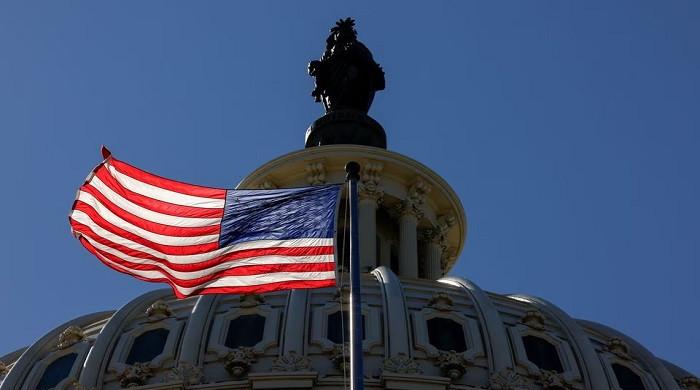With the impending shutdown of the US government mere hours away, Republican Speaker Kevin McCarthy on Saturday made a last-minute proposal to avert the looming closure, AFP reported, amid fears that stalled Ukraine war aid could allow Russia to deal a death blow to Kyiv.
The US government shutdown would cast uncertainty over a wide range of matters, including access to national parks and Washington’s significant support for Ukraine.
Non-essential services may freeze
The potential freeze of all non-essential government services, scheduled to commence after midnight on Saturday (0400 GMT Sunday) in the absence of a congressional agreement, would mark the first government shutdown since 2019.
This would immediately disrupt the paychecks of millions of federal employees and military personnel.
Deadlock persists
The deadlock in Congress has persisted, primarily due to a small group of staunch Republicans in the House of Representatives who have resisted temporary funding proposals aimed at maintaining basic government operations.
On Saturday, Speaker McCarthy orchestrated a vote on a new measure designed to extend government operations for an additional 45 days at the current spending levels.
However, this proposal did not include any provisions for aid to Ukraine, a contentious point of disagreement with Democrats.
“I am asking Republicans and Democrats alike. Put your partisanship away,” McCarthy said Saturday.
Threat to remove speaker
If the bill receives the significant Democratic support it would need to pass and overcome hardline Republican opposition in the House, the right-wingers have threatened to remove the speaker from his post.
“If somebody wants to remove (me) because I want to be the adult in the room, go ahead and try,” McCarthy said, as he also sought to shift any blame for a shutdown on President Joe Biden.
If Biden lobbies against the latest stopgap, “then the shutdown is on him,” McCarthy said.
Growing sense of chaos
The White House insists the real negotiation is between McCarthy and the hardliners who scuppered a similar temporary funding measure on Friday, underlying a growing sense of chaos inside the Republican party ahead of next year’s presidential election.
“There are those in Congress right now who are sowing so much division, they’re willing to shut down the government tonight,” Biden said Saturday morning on X, formerly known as Twitter. “It’s unacceptable.”
The Democrat-controlled Senate had been expected to vote on its own stopgap bill later Saturday – one that does include funding for Ukraine.
Big question on Ukraine
While all critical government services would remain functioning, a shutdown would mean the majority of national parks, for example — from the iconic Yosemite and Yellowstone in the west to Florida’s Everglades swamp — would be closed to public access beginning Sunday.
With student loan payments resuming in October, officials also said Friday that key activities at the Federal Student Aid office would continue for a couple of weeks.
But a prolonged shutdown could cause bigger disruptions.
World’s largest economy at risk
A shutdown “unnecessarily” places the world’s largest economy at risk, White House National Economic Council Director Lael Brainard told CNBC.
Risks that could percolate through the wider economy include air travel delays, with air traffic controllers asked to work without pay.
Treasury Secretary Janet Yellen warned a closure could also delay infrastructure improvements.
“In the immediate term, a government shutdown will only reduce GDP by 0.2 percentage points each week it lasts,” said a report released Friday by the Center for Strategic and International Studies, a think tank, adding that a shutdown would “undermine the United States’ overall credibility as a commercial partner.”
The mess and its shadow
The mess casts a growing shadow over Biden’s policy of arming and funding Ukraine in its desperate war against the Russian invasion. For Republican hardliners behind the derailment of a new budget, stopping aid to Ukraine is a key goal.
Most Republican members of Congress continue to support US backing for Ukraine, but the shutdown will at minimum raise questions over the political viability of renewing the multibillion-dollar flow of assistance.

